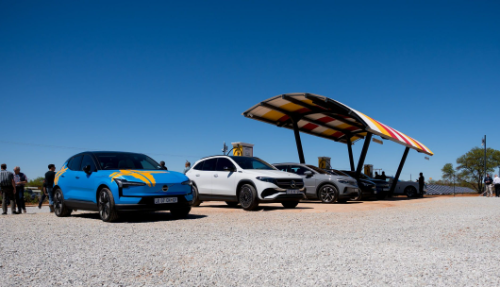Zero Carbon Charge Gets $5.6M to Expand Off-Grid EV Charging Network

TLDR
- South African startup Zero Carbon Charge has received ZAR100 million ($5.6 million) in equity funding from the Development Bank of Southern Africa
- The company has developed a decentralised energy model that generates power at each charging site, eliminating reliance on Eskom’s grid
- The new capital will support the deployment of ultra-fast charging stations every 150 km along national roads, designed to reduce EV range anxiety
South African startup Zero Carbon Charge has received ZAR100 million ($5.6 million) in equity funding from the Development Bank of Southern Africa (DBSA) to expand its national network of off-grid, solar-powered ultra-fast EV charging stations.
The company has developed a decentralised energy model that generates power at each charging site, eliminating reliance on Eskom’s grid. Each station is powered entirely by solar energy and battery storage, supporting South Africa’s push toward a net-zero transport economy.
The new capital will support the deployment of ultra-fast charging stations every 150 km along national roads, designed to reduce EV range anxiety and improve access to clean mobility infrastructure across the country. DBSA’s investment signals growing institutional support for climate-resilient infrastructure in South Africa’s energy and transport sectors.
Daba is Africa's leading investment platform for private and public markets. Download here
Key Takeaways
Zero Carbon Charge’s model addresses two major hurdles in South Africa: grid instability and EV infrastructure gaps. By operating fully off-grid and using renewable energy, the company bypasses dependence on Eskom while aligning with the country’s emissions reduction goals. The DBSA investment reflects a broader push by development finance institutions to support low-carbon transport systems and resilient infrastructure. With the country’s EV adoption still in early stages, reliable and renewable charging networks are critical to building public confidence in electric mobility. The rollout of solar-powered chargers along national roads also supports rural connectivity and decentralised energy access, offering a scalable blueprint for EV infrastructure in other emerging markets. As South Africa moves toward wider EV adoption, private-public partnerships like this could shape the foundation of a cleaner, more reliable transport system.

Next Frontier
Stay up to date on major news and events in African markets. Delivered weekly.
Pulse54
UDeep-dives into what’s old and new in Africa’s investment landscape. Delivered twice monthly.
Events
Sign up to stay informed about our regular webinars, product launches, and exhibitions.




